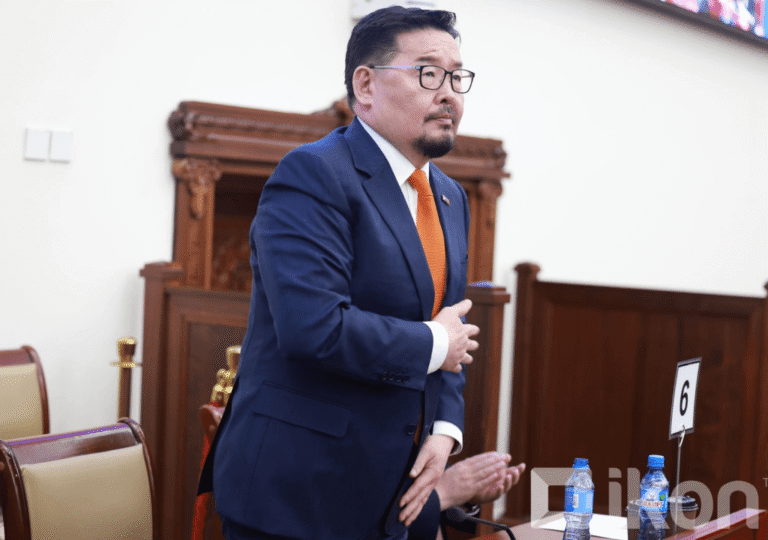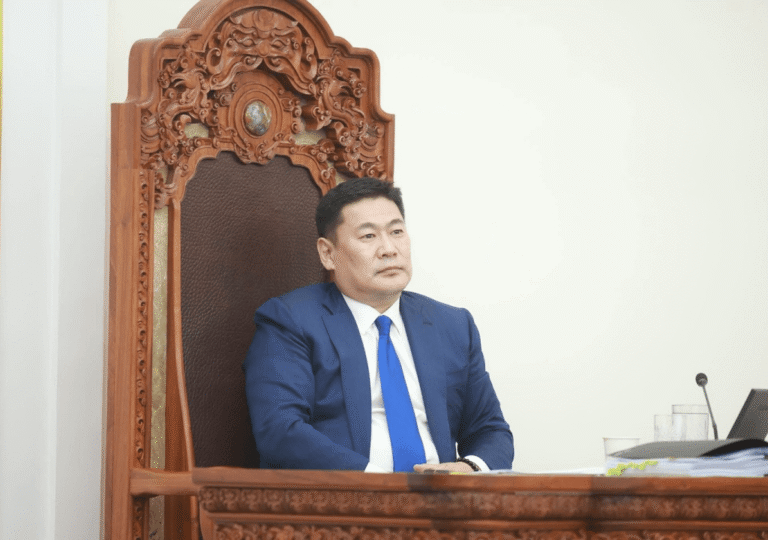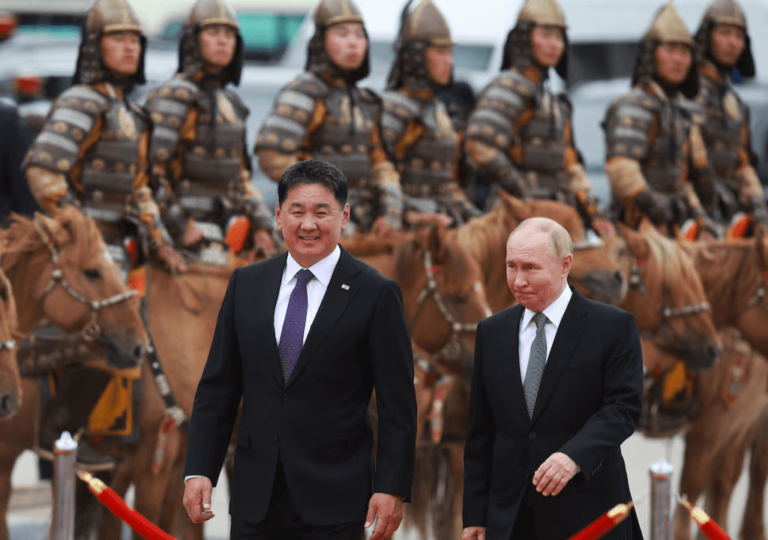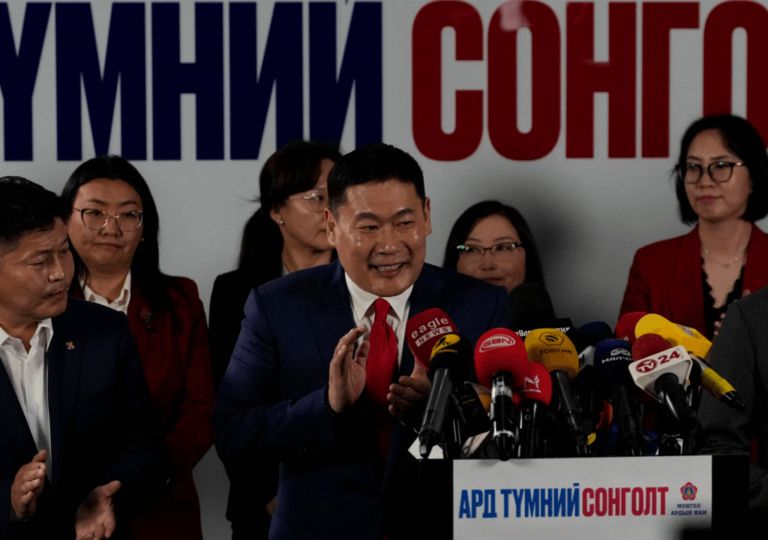In Mongolia, a New Prime Minister—and Familiar Questions About Stability

Mongolia's new prime minister takes office amid public unrest. Can he bring lasting political stability to a nation weary of protests and broken promises?

Mongolia's new prime minister takes office amid public unrest. Can he bring lasting political stability to a nation weary of protests and broken promises?

Mongolia’s Prime Minister Oyun-Erdene resigns after losing a parliamentary confidence vote, exposing deep political rifts. What lies ahead for the country's fragile democracy amid rising public anger, and economic pressure.

Mongolia welcomed Putin despite ICC arrest warrant, raising concerns over its international obligations and geopolitical stance

Mongolian ruling party wins reduced majority amid public anger over corruption and economy.